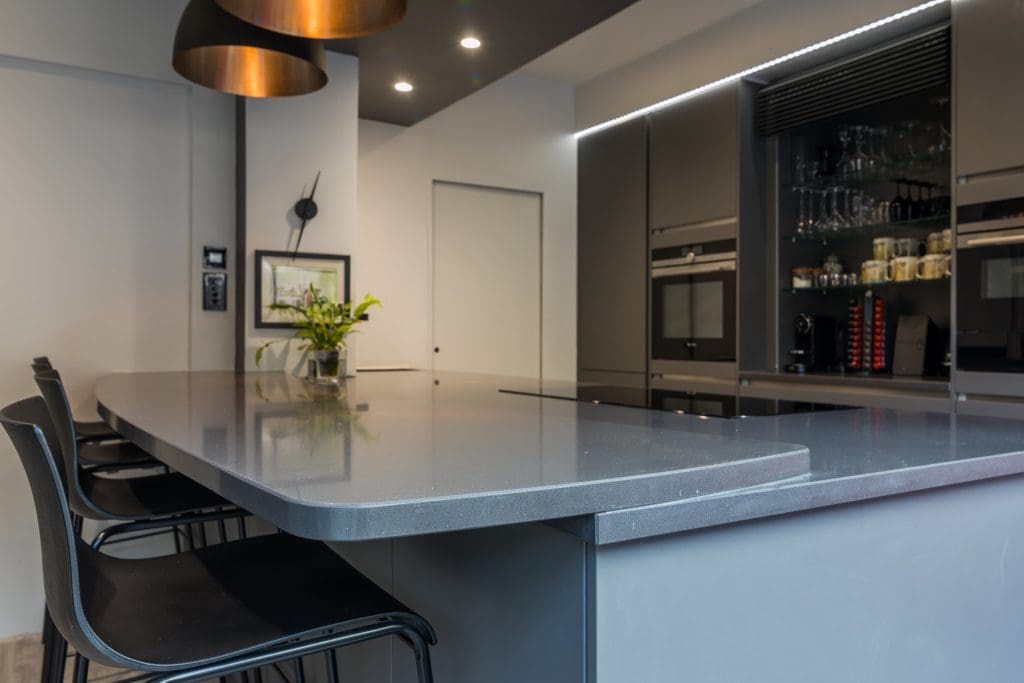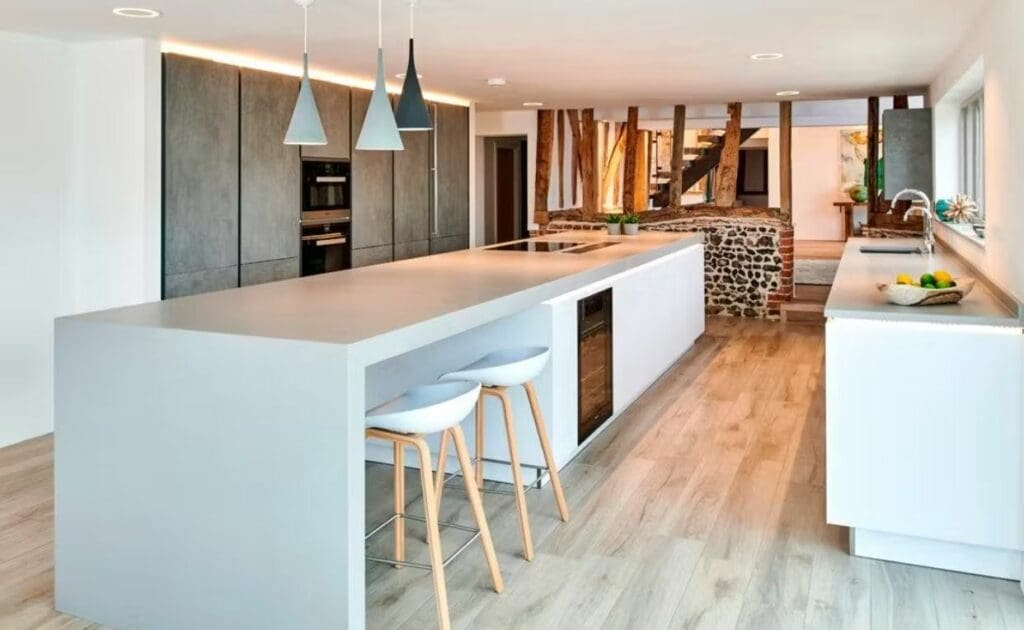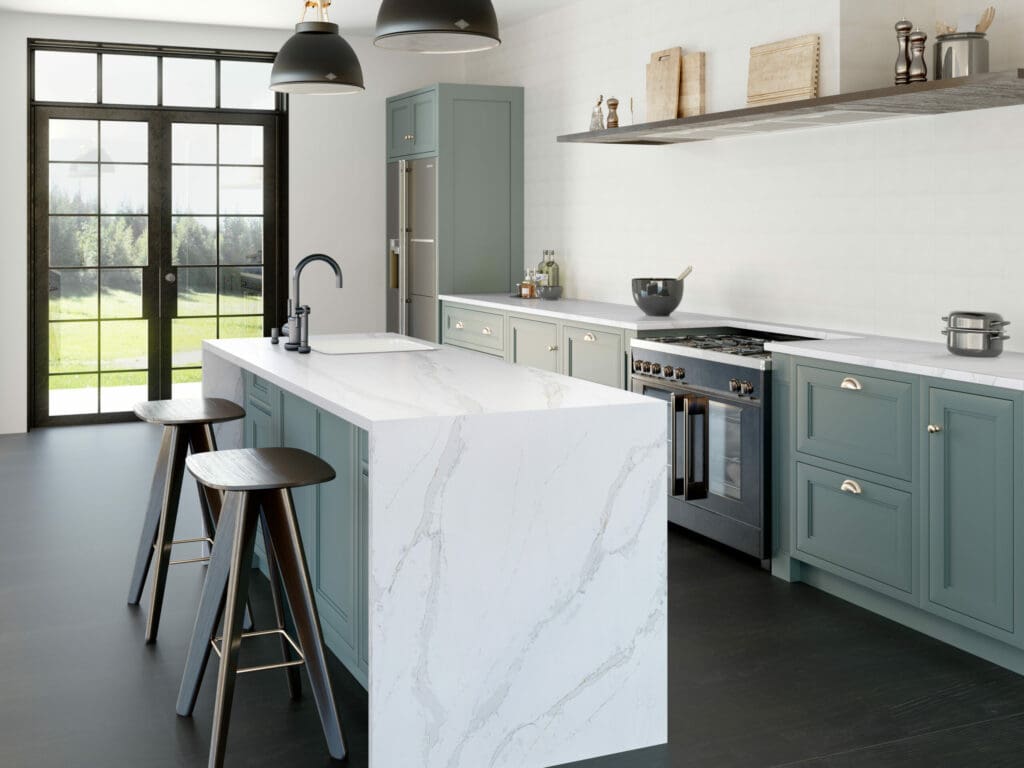
Silestone Kitchen Worktops: The Ultimate Guide
Silestone by Royal Marble
What are Silestone Kitchen Worktops?
Silestone kitchen worktops are a popular choice for homeowners and designers looking for a durable and elegant surface for their kitchen. These worktops are made from engineered stone, which is a combination of natural quartz and other materials, such as pigments and resins. Silestone kitchen worktops offer many benefits including a non-porous, scratch-resistant and durable surface, which makes them a great choice for hard working kitchen worksurfaces.

How are Silestone Kitchen Worktops Made?
Silestone kitchen worktops are made from a blend of natural quartz and other materials, such as pigments and resins. The raw materials are first crushed into small pieces and then blended together to create the desired colour and/or pattern. The resulting compound is then poured into a Mold, where it is compressed under high pressure and heat to create a solid surface. This process is called “vibrocompression” and it results in the creation of a very strong and consistent surface material.
Pros of Silestone Kitchen Worktops
- Durable: Silestone kitchen worktops are extremely durable and resistant to scratches, stains, and heat. This makes them a great choice for high-traffic areas in the kitchen.
- Low Maintenance: Because of its non-porous surface, Silestone kitchen worktops are very easy to clean and maintain. They do not require sealing or regular maintenance like other natural stone surfaces such as granite.
- Wide Range of Colours and Patterns: Silestone kitchen worktops come in a wide range of colours and patterns, which allows homeowners to find the perfect style for their kitchen.
- Resistant to Bacteria: Silestone kitchen worktops are resistant to bacteria, which makes them a hygienic option for kitchen worksurfaces.
- Eco-Friendly: Silestone kitchen worktops are an eco-friendly choice because they are made from natural materials and as a long-lasting surface material, they do not require frequent replacement.


Comparison with Other Popular Worktop Materials
- Granite: Silestone kitchen worktops are similar to granite in terms of durability and resistance to heat and scratches. However, granite is a porous natural stone and requires regular sealing to prevent stains. Silestone kitchen worktops, on the other hand, are non-porous and do not require sealing.
- Laminate: Laminate worktops are less expensive than Silestone kitchen worktops but are not as durable or heat-resistant. They can also be damaged by scratches and stains.
- Solid Wood: Solid wood worktops are less expensive than Silestone kitchen worktops, but they are not as heat-resistant or durable. They also require regular maintenance and can be damaged by water.
- Cambria: Both Cambria and Silestone kitchen worktops are made from a blend of natural quartz and pigments that are combined and then formed into a solid surface. However, Cambria kitchen worktops have a wider variety of designs, patterns and colours to choose from, and they also have a more natural look and feel than Silestone kitchen worktops, which are more uniform and consistent in colour and pattern.
- Natural Stone: Unlike natural stone, engineered stone surfaces like Silestone can have a more consistent pattern and colour, it is also more flexible in terms of customization, as it can be produced in a wide range of colours and patterns. Engineered stone is also more resistant to bacteria, which can make it a more hygienic option for kitchen countertops.
Book Your Free Consultation

